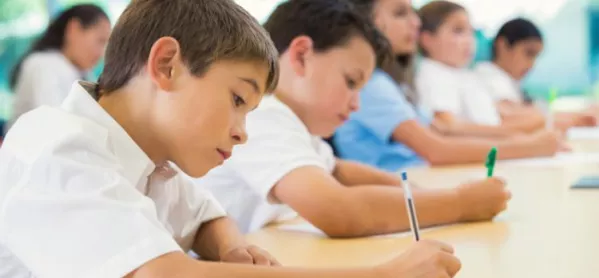Nearly one in five youngsters doubts their academic abilities and self-worth, according to a survey of more than 850,000 pupils.
The study found that 19 per cent of all pupils exhibit low self-regard and doubt their capabilities as learners, and 6 per cent had extremely poor attitudes to their learning and have very low self-regard.
Antonis Kousoulis from the Mental Health Foundation said: “Self-esteem is a core building block in good mental health. It is concerning to see almost one-fifth of students not feeling confident in themselves and another fifth feeling negatively about the schools where they spend most of their time.
“Half of all adult mental health problems are established by the age of 14 - that’s why it’s crucial kids at school age are equipped with the knowledge and skills to understand and protect their mental health.”
The study also found that 18 per cent of pupils surveyed have negative feelings about their school, with 15 per cent exhibiting a low work ethic.
The authors said children tend to show increasingly negative attitudes as they get older.
Greg Watson, chief executive of GL Assessment: “If we want our children to achieve their full potential in life and reduce the prevalence of poor mental health, we have to start making sure they are healthy, happy and confident in school first.
“Sadly, our study shows that far too many children remain at risk and that we have to work harder to identify those who seem fine on the surface but have hidden barriers to learning.”
Girls were more positive than boys when it came to school attendance (77 per cent saying they were highly satisfied, compared to 71 per cent of girls), and preparedness for learning (79 per cent, compared to 70 per cent).
The study also painted a mixed picture when it came to pupils from deprived backgrounds.
Children in schools with large numbers of pupils eligible for free school meals are less likely to respond well to curriculum pressures (63 per cent, compared to 71 per cent) but the former are more positive than the latter about their teachers (72 per cent, compared to 67 per cent).
The research uses data from GL Assessment’s Pupil Attitudes to Self and School psychometric measure, taken by pupils across the UK over the past two years.
A government spokesperson said: “We want all young people to grow up feeling confident about themselves and able to get the right mental health support when they need it.
“That is why we have allocated £300 million to provide significant additional resources for early mental health intervention for all schools - primary and secondary - and committed to ensuring all children and young people learn about mental wellbeing.”





